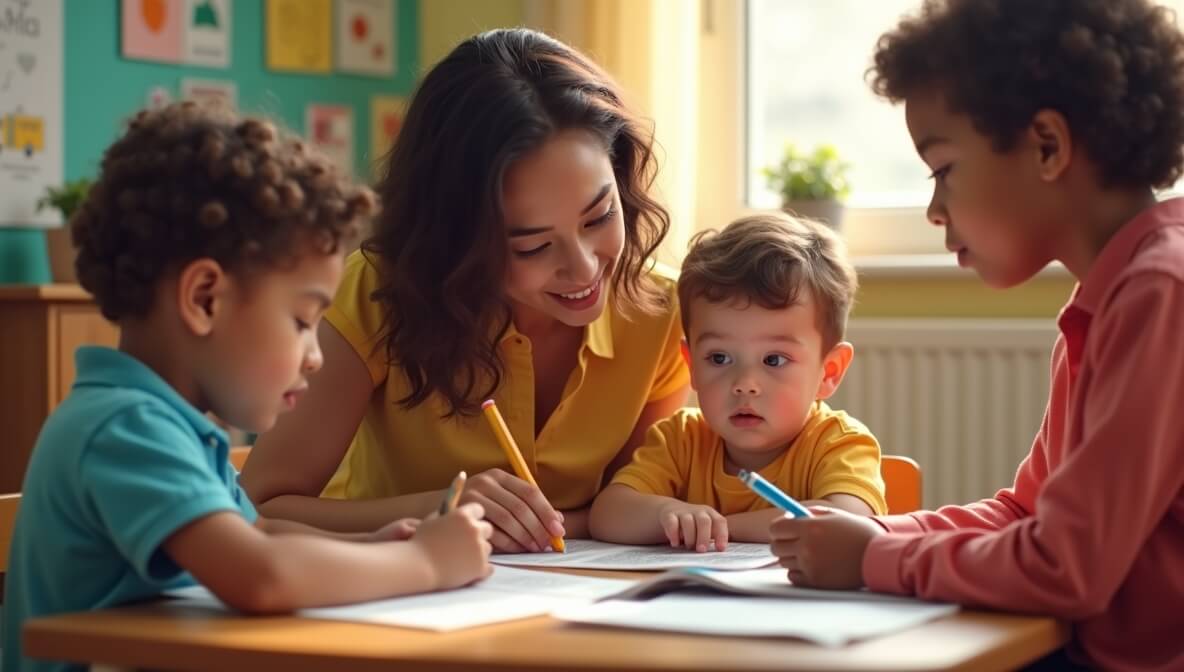Understanding Learning Disabilities and Support Systems

What Are Learning Disabilities?
Learning disabilities are lifelong neurological conditions that affect how the brain processes, stores, and responds to information. They are not related to intelligence — in fact, many individuals with LDs are highly creative and insightful thinkers. The challenge lies in how they absorb or express what they know.
Common Types of Learning Disabilities:
- Dyslexia: Trouble reading, decoding words, spelling.
- Dyscalculia: Difficulty with numbers, patterns, and math operations.
- Dysgraphia: Struggles with handwriting, organization of thoughts on paper.
- ADHD (Attention Deficit Hyperactivity Disorder): Impacts focus, behavior regulation, and executive functioning.
- Auditory & Visual Processing Disorders: Trouble making sense of what is heard or seen, despite normal hearing/vision.
According to the National Center for Learning Disabilities (NCLD), 1 in 5 U.S. children have learning or attention issues — yet many go undiagnosed or unsupported.
Early Identification Is Key
The earlier LDs are identified, the better the outcomes. Look for patterns — not just occasional struggles.
Common Red Flags:
- Difficulty following multi-step directions
- Trouble sounding out or remembering words
- Inconsistent spelling or math performance
- Avoiding school-related tasks or frequent “meltdowns” over homework
- Strong verbal skills but weak reading or writing skills
Many schools offer evaluations at no cost — don’t wait to speak up if something feels off.
Support Systems That Make a Difference
Supporting a child with an LD requires a team approach — school, family, and sometimes therapy or community resources. Here's how each layer plays a role:
1. School-Based Support
- Federal laws like the Individuals with Disabilities Education Act (IDEA) ensure educational rights for students with disabilities.
- IEP (Individualized Education Program): A legal plan for students with qualifying LDs — includes goals, services, and accommodations.
- 504 Plan: For students needing accommodations (but not special ed services) to access learning equally.
- Accommodations & Tools: Extra time, audiobooks, speech-to-text software, modified homework, sensory tools, and more.
- Special Education Professionals: Teachers, psychologists, and aides trained to support diverse learners.
- Tip: Always request copies of evaluations, plans, and progress reports — and don’t hesitate to bring a trusted advocate or note-taker to school meetings.
2. Parental Advocacy and Home Support
- You are your child’s first and most important advocate. You don’t need to be an expert — just consistent, supportive, and informed.
- Ways to support at home:
- Create structured routines and quiet study spaces.
- Use multi-sensory tools (e.g., flashcards, audiobooks, color-coded folders).
- Reinforce strengths through hobbies like drawing, music, or building.
- Break homework into small, manageable chunks.
3. Community, Therapy, and Support Groups
- Children with LDs often benefit from additional, non-academic support:
- Speech or occupational therapy
- Counseling for anxiety, frustration, or social skills
- Parent support groups — online or local (via libraries, nonprofits, or school districts)
- Tutors and learning centers that specialize in LDs
- These services provide vital confidence-building, helping kids realize they are not alone — and that different doesn’t mean less.
Emotional and Social Support
Learning challenges can affect a child’s self-esteem, motivation, and peer relationships. Encouragement and empathy are just as vital as academic help.
Ways to Build Resilience:
- Celebrate effort, not just outcome — focus on progress over perfection.
- Emphasize strength-based learning: If your child excels in music, art, or storytelling, make space for that.
- Model positive self-talk: How you respond to your own mistakes teaches them how to handle theirs.
- Teach self-advocacy: As they grow, help your child express their needs confidently and respectfully.
Inclusion in sports, clubs, or creative activities can also build confidence outside the classroom.
Trusted Resources for Parents & Caregivers
Final Thoughts: Progress Over Perfection
- Learning disabilities don’t define a child’s potential — they simply describe how they learn best. With early identification, consistent support, and encouragement, children with LDs can grow into confident, capable, and creative adults.
- If you’re navigating this journey as a parent, educator, or caregiver, remember: you are not alone — and your advocacy matters more than you know.
